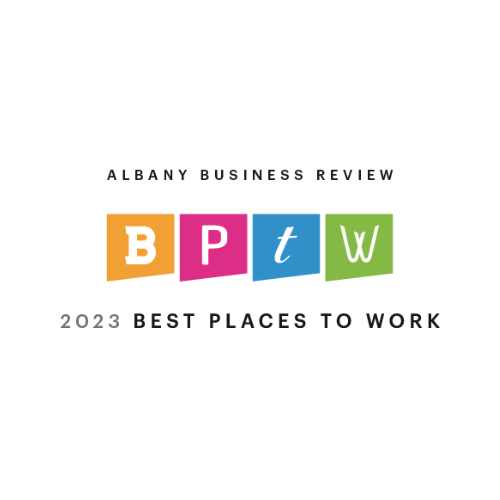As an organization considers the appropriateness of outsourcing, it may be wise to begin that exploration with a basic explanation of what outsourcing is and is not. We refer to outsourcing as taking a position vital to your organization and having an expert work on it from a consultative standpoint as opposed to hiring an employee and having that employee physically operating within your office. These outsourced experts specialize in finance and accounting and can help advise and guide your business.
Misconceptions
Outsourcing does not result in the need to fire staff within your organization. So, rather than viewing outsourcing as reducing staff, we view it as an opportunity to re-purpose people within your organization and enable them to focus on areas and activities in which they can utilize their unique and specialized skill set. By way of example, a business may have a skilled accounts payable clerk on staff, but that person may require oversight in the form a controller role. With outsourcing, a business can maintain their accounts payable clerk within the company and that staff member will report to and work with our outsourced expert controller. Additionally, outsourcing does not necessarily mean sending jobs overseas. In fact, within our practice, 100% of our staff is located within the United States.
Smoke Signals
There are numerous circumstances or conditions occurring within a business that may signal the need to consider outsourcing:
- Expertise – a business may lack the required skill set to adequately perform essential functions or it may not be able to afford the expertise level on a full-time basis.
- Technology – either where a business is outgrowing its technology or if there is no technology to support its accounting functions.
- Focus - is not on revenue generation - when business operators find that they are taking time away from revenue-generating opportunities to address critical, but time-consuming finance functions, this can inhibit business growth.
- Growth inhibitors – organizations may find that the needs of its management are beyond the means and skill of existing staff.
- Decision making limitations - when businesses find that they are using yesterday’s information to make tomorrow’s decisions.
- Poor use of management’s time – if “do it all” entrepreneurs find that they are paying the bills between the hours of 10 o’clock and midnight, the chances are that this business leader is not getting information to make timely and informed decisions.
- Part-time needs – a business may not require a controller or a bookkeeper for a full 40-hour workweek.
Internal Controls and Fraud Protection
Areas of deficiency that may not be as readily apparent include internal controls, fraud protection, and segregation of duties. Perhaps there are not enough people within an accounting department and even though there may be some level of expertise and technology, the same person may be opening the mail, posting payments, cutting checks, and signing checks. There is no oversight. Outsourcing can provide a level of external control and oversight. Furthermore, outsourcing can offer budgeting and strategy assistance and help bring oversight to the entire function of the accounting department.
Although outsourcing can work well for a broad array of organizations, not all outsourcing providers have the necessary expertise to specialize in every industry. When evaluating outsource providers, businesses should seek specific expertise with a demonstrated knowledge of that businesses’ industry along with an understanding of the specific metrics and dynamics of the market in which a business operates.
Quantitative Savings
Outsourcing can represent an opportunity for businesses to save money. The right level of service and time can be applied to what a business really requires – for example, half of a bookkeeper’s or controller’s time. An average bookkeeper might carry a salary of $45,000/year or an average controller might require $75,000/year. A single outsourcing resource can bridge those two expertise areas and instead of a business spending $110,000 for two fulltime people (that may have a lot of downtime) – an investment of $55-$65,000 could provide a high level of skilled expertise and capacity. So, not only can the skills gap be bridged, but businesses can also save on payroll taxes, benefits, health insurance, and overhead items such as computers.
Qualitative Improvement
With outsourcing, you are bringing in a higher level of expertise than currently exists within an organization. Providers such as Virtual Accounting Solutions (VAS) a division BST & Co. offer tools such as custom dashboards that have been built based upon its expertise in certain industries. These dashboards feature metrics that are very specific and give businesses guidelines and budgets – for example, payroll costs as a percentage of revenue for a specific industry - and where performance is out of a defined range, it enables businesses to take a closer look and take appropriate actions.
Knowledgeable providers have access to industry metrics and specifics plus they have technicians such as accounts payable specialists with knowledge in a specific industry. These specialists bring a high level of efficiency and effectiveness to their work. Higher-level experts such as controllers know how to review financial statements and how to react or respond within a given industry. So, it can be the best of both worlds where businesses can get their accounting and finance less expensively and have it done better and timelier than before.
And although businesses can always perform work less expensively by simply hiring “Sally bookkeeper” or “John A/P clerk”, these people may act without oversight which exposes a company to the risk of fraud.
Success Stories - Working on their business and not in their business
So, how does this translate into a real-life situation? VAS assisted a company that had broken away from a national franchise and started a business from scratch. This business had no revenues on day one, but they did understand the value of financial statements and knowing their numbers. The founders of the company faced the challenge that they were great salespeople, but they had never managed an entire company before. They retained VAS to build its accounting processes, software, and dashboards. VAS handled its financial operations from day one. We conduct monthly meetings with ownership to talk about metrics, cash flows, and its overall financial health. Within 18 months of opening their doors, they crossed over the million-dollar revenue threshold and ownership attributes this to being able to work on their business and not in their business. They were not spending their nights paying their bills and worrying about things such as cash flows. Regular meetings addressed how all items were being accounted for and they ended up opening three locations within four years and they were able to do all of that because they had the financial backbone of VAS behind them.
Authenticity and Caring – Creating Value for Clients
VAS has established and maintained long-standing outsourcing relationships through a mix of expertise, authenticity, and caring. Clients value and appreciate our expertise but even more so, they believe they have found a true partner. Our partnership revolves around: great people, great technology, and a high degree of individual attention where we become a seamless part of the client’s finance team. We actively work together to create value for the client, so that they can make informed, confident decisions.



